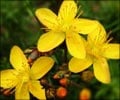A unique Mayo Clinic collaboration has revived the healing wisdom of Pacific Island cultures by testing a therapeutic plant extract described in a 17th century Dutch herbal text for its anti-bacterial properties. Early results show that extracts from the Atun tree effectively control bacteria that can cause diarrhea, as claimed by naturalist Georg Eberhard Rumpf, circa 1650. He documented his traditional healing methods in the book Ambonese Herbal.
The Mayo Clinic-led team’s report appears in the Dec. 23 edition of The British Medical Journal, www.bmj.com. In their report, Mayo Clinic researchers demonstrate the feasibility of using sophisticated data mining techniques on historical texts to identify new drugs.Significance of the Mayo Clinic Research The study provides a creative new model for drug discovery. It integrates nontraditional, ancient medical information with advanced technologies to identify promising natural products to investigate as drugs for new and better therapies.
“Natural products are invaluable sources of healing agents -- consider, for example, that aspirin derived originally from willow bark, and the molecular basis of the anti-cancer chemotherapeutic agent Taxol™ was derived from the bark of the Pacific yew tree. So it’s not so far-fetched to think that the contributions of an ancient text and insights from traditional medicine really may impact modern public health,” explains Brent Bauer, M.D., director of the Mayo Clinic Complementary and Integrative Medicine Program.
For thousands of years, people around the world have lived intimately with botanical healing agents and evolved effective healing traditions. “Our work shows just how much we can learn from them. But to make the most of what is fast becoming lost knowledge, we have to respect, preserve and work with traditional healing cultures,” adds Eric Buenz, Ph.D., researcher for Minnesota-based BioSciential, LLC.
Source-Newswise
SRM










